Please note: this event has passed
Registration
There is no participation fee, and it is open to anyone who is interested, but registration is required for catering purposes. Click here for registration.
If you would like to present, please feel free to contact Mehmet Ismail (chair) at mehmet.ismail@kcl.ac.uk.
The workshop is sponsored by the School of Politics and Economics at King’s College London, and the EURO working group OR in Sports.
Both practitioners and academics are welcome.
Location
King's College London
Bush House Centre Block, Level 2, South: (S) 2.01/2.02 (see R on map)
Invited Speakers / Participants (by alphabetical order):
Workshop Programme
A PDF of the workshop can be found here.
| 10:00 | Gathering | ||||||
| 10:10 | John Barrow | Introduction: Fairness in Sport | |||||
| 10:55 | John Haigh | Fairness: what weapons do we have? | |||||
| 11:15 | Frank Duckworth | The Duckworth/Lewis method in cricket | |||||
| 11:45 | Lunch Break | ||||||
| 12:45 | Ian Braid | Fairness of selection policies for athletes aiming for Tokyo 2020 | |||||
| 13:15 | Philip Scarf | Would it be fair to narrow the goal posts: the case of international rugby union? | |||||
| 13:45 | Walter Stromquist | Catch-Up: A Rule That Makes Service Sports More Competitive | |||||
| 14:15 | Coffee break | ||||||
| 14:45 | Dries Goossens | Fairness issues in sport scheduling: the carry-over effect | |||||
| 15:15 | Silvia Camporesi | When is it fair to be a woman athlete? | |||||
| 15:45 | Short break | ||||||
| 16:00 | Steven Brams | Making the Rules of Sports Fairer | |||||
| 16:30 | David Elleray | How can we change football's Laws to make the game fairer and more attractive? | |||||
| 17:00 | End | ||||||
Biographies
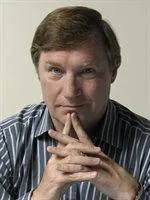
John D. Barrow has been a Professor of Mathematical Sciences at the University of Cambridge since 1999, carrying out research in mathematical physics, with special interest in cosmology, gravitation, particle physics and associated applied mathematics. Since coming to Cambridge in 1999, he has directed and developed the Millennium Mathematics Project, which includes 'Maths and Sport' website, originally developed to celebrate the London 2012 Olympic and Paralympic Games. In addition to more than 500 research papers in astrophysics and cosmology, he has also written more than 20 books about many of the wider aspects of science and mathematics, including 100 Essential Things You Didn't Know You Didn't Know About Sport.
John Barrow plans to talk about a variety of examples relating to scoring systems, ranking systems, handedness, para-sports, weight categories, and sports where raw performances are transformed into points by some formula.
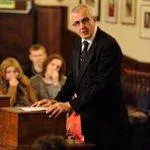
Ian Braid, the former head of the British Athletes’ Commission, and now managing director of DOCIA sport, work collaboratively with people in sport to help measure and deliver effective, sustainable "Duty of Care in Action”. He was a significant contributor to Baroness Tanni Gray Thompson’s Duty of Care review in sports.
Ian Braid will focus on the “Fairness of selection policies for athletes aiming for Tokyo 2020” based on his experience involved in the selection policies for Rio Olympic Games and the Gold Coast Commonwealth Games.
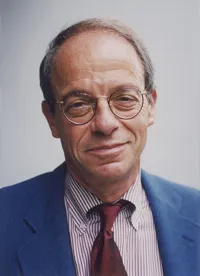
Steven J. Brams is Professor of Politics at New York University. He is a Fellow of the American Association for the Advancement of Science, a Guggenheim Fellow, and was a Visiting Scholar at the Russell Sage Foundation. He has taught at the University of Rochester, the University of Michigan, the University of Pennsylvania, the University of California, Irvine, and Yale University and has been president of two academic societies, the Peace Science Society and the Public Choice Society. Over several decades, he has regularly collaborated with mathematicians on applications, especially using game theory and social choice theory, to a variety of subjects in the humanities and social sciences, including fair division, voting, and sports. The subject of the workshop has a personal attraction to him as a tennis and squash player.
Steven Brams will talk about his research on the fairness of rules in various sports including football (soccer) and the three big American sports—baseball, football (American), and basketball.
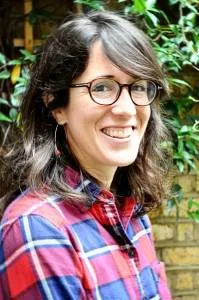
Silvia Camporesi is a bioethicist with an interdisciplinary background in biotechnology, ethics and the philosophy of medicine. She is an Assistant Professor in the Department of Global Health and Social Medicine and Director of the MSc in Bioethics & Society at King's College London, UK. Over the past decade, Silvia has written extensively about the ethics of sport, and the ethics of emerging biotechnologies. Her first book, From Bench to Bedside to Track and Field: the Context of Enhancement and its Ethical Relevance, was published for UC Medical Humanities Press in 2014. Her second book titled “Bioethics, Genetics and Sport” and co-authored with Mike McNamee (Swansea University) was published in March 2008. Her work on the Semenya’s case has been widely cited by the media including the Guardian, CNN and Newsweek. Among other things, Silvia is a member of the British Philosophy of Sport Association, serves on the Institute of Medical Ethics Research Committee and as Associate Editor for the Journal of Bioethical Inquiry.
When is it fair to be a woman athlete? Considerations regarding the eligibility of female athletes with hyperandrogenism to compete in the female category.
The International Association for Athletics Federation (IAAF) released Hyperandrogenism Regulations regarding the eligibility of female athletes to participate in the female category in 2011, following Caster Semenya’s case in 2009. The Regulations have been at the centre of a harsh dispute regarding when it is fair to be a woman athlete. In the first part of the talk I briefly recap Caster Semenya’s case, before discussing Dutee Chand’s appeal to the Court of Arbitration for Sport in July 2015, and subsequent suspension of the regulations in July 2015 on ground of lack of enough evidence concerning a correlation between testosterone and performance advantage. In the second part of this talk I argue that even if additional evidence were put forward to demonstrate a correlation between increased testosterone and performance, that would not constitute an unfair advantage and ground for reinstatement of the Regulations. I conclude by mentioning the more recent developments of the case (April 2018) and the release of new IAAF Regulations.
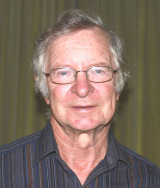
Frank Duckworth is a retired English statistician, and is one of the two statisticians who developed the Duckworth–Lewis method of resetting targets in interrupted one-day cricket matches. He studied physics and earned a PhD in metallurgy at the University of Liverpool. Prior to his retirement, he worked as a mathematical scientist for the English nuclear power industry. He is a consultant statistician to the International Cricket Council, and the editor of the Royal Statistical Society's monthly news magazine, RSS News. He also served on the editorial board of Significance before stepping down in 2010. In 2004 he delivered the Royal Statistical Society Schools Lecture, entitled Lies and Statistics. Duckworth is also known for developing a system of quantifying personal risk perception, now known as the "Duckworth scale”. Duckworth was appointed Member of the Order of the British Empire (MBE) in the 2010 Birthday Honours.
Frank Duckworth will be talking about making a fair correction to targets in rain-interrupted one-day cricket matches.
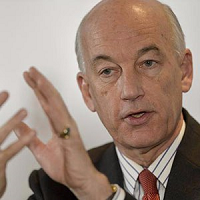
David Elleray, Technical Director of football’s rule-making body The IFAB, is a former English Premier League and FIFA referee whose appointments include the FA Cup final (1994), FIFA Club World Cup final (1995), EURO ‘96 and the UEFA Super Cup (1997). David is a FIFA Referee instructor and a member of the UEFA Referee Committee; he ran the UEFA Centre of Refereeing Excellence (CORE) programme from 2010-17. His positions in the English football include: Chairman of the FA Referees' Committee (since 2009) and membership of the Football Regulatory Authority, FA Compliance Monitoring Group (Chairman) and FA Football Development Committee. He has just retired after 14 years as President of the Referees’ Association and has been Chairman of the Independent Schools FA since 2005. He was awarded an honorary doctorate from Sheffield Hallam University in 2010 and was appointed Member of the Order of the British Empire (MBE) in the 2014 Queen’s Birthday Honours, for services to football.
How can we change football's Laws to make the game fairer and more attractive?
David Elleray proposes changes to football to make the game fairer and more attractive (e.g., see The Sun article). He will talk about fairness issues in football and how to address them. For The IFAB's 'play fair!' strategy, see the following link:

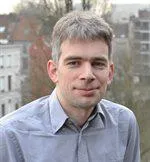
Dries Goossens is assistant professor at the Faculty of Economics and Business Administration of Ghent University. His research interests are mainly in tournament scheduling and related fairness issues (e.g. the carry-over effect); favorite sports are cycling and football (soccer). Together with Frits Spieksma, he has been computing the official schedule for the Belgian Pro League since 2006. Apart from sports, Dries Goossens has also done research on combinatorial optimization problems, such as combinatorial auctions, the transportation problem, and the assignment problem.
Fairness issues in sport scheduling: the carry-over effect
In 1847, Reverend T. Kirkman published the so-called “circle method”, which can be used for constructing a schedule for round-robin competitions. This method has been used abundantly in practice for many sports leagues around the world to construct schedules in round robin competitions. Consider the following phenomenon, which is relevant in any round-robin tournament. Imagine that your team is facing some other team in an upcoming match; we argue that the opponent of this other team in the previous match is relevant for your team’s upcoming match. Indeed, if the team you're about to face has experienced a heavy loss in its previous match, the team may have a low morale, or be discouraged, and hence perhaps easier to beat. Then your team is receiving a so-called carry-over effect from the previous opponent of the team your team is about to face. Of course, the opposite is possible as well: strengthened by having beaten a weak opponent in their previous match, the team your team is about to face is full of morale, and perhaps more difficult to beat. Obviously, any schedule includes carry-over effects, however, ideally these carry-over effects are balanced over the teams. In this talk we show that the circle method is the most unfair method with respect to balancing carry-over effects. Furthermore, we discuss a number of other fairness issues that arose when scheduling the highest division of the Belgian soccer league.
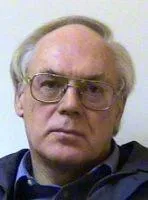
John Haigh is an Emeritus Reader in Statistics at the University of Sussex. His area of research includes Applied probability, and Games and gambling. He is the author of, among others, "The Hidden Mathematics of Sport" (with Rob Eastaway). He has acted as an expert witness, on mathematical aspects of evidence, in several cases, including the so-called "Kieran Fallon trial" in 2007, the series of cases in Bristol Crown Court from 2012 to 2014 that ended with jail sentences for a group of women convicted of running illegal "pyramid schemes", and the Pakistani cricketers' "spot-fixing" case. The Royal Statistical Society has employed Charles Goldie and John Haigh to analyse data from the National Lottery to check on the "randomness" of the numbers selected. He has frequently been interviewed on the radio about aspects of the National Lottery.
John Haigh will look at diverse sports, including soccer, darts, tennis, cricket, ice-skating and modern pentathlon to see how unfairness has been, or could be, addressed.
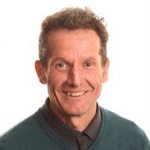
Philip A. Scarf is Professor of Applied Statistics at Salford Business School and a member of the Centre for Sports Business (http://www.salford.ac.uk/business-school/research/centre-for-sports-business). He has wide ranging interests in the application of statistical modelling in sport, reliability and maintenance, and corrosion engineering. He chairs Mathsport International, the international conference series http://www.mathsportinternational.com/) and is a member of the board of the Euro Working Group on OR in Sports. He has advised the FA Premier League about football player rating, having developed the EA Sports Player Performance Index with Ian McHale, and has held EPSRC grants relating to development of optimum strategy in track cycling, and modelling of the training process. He is editor of the IMA Journal of Management Mathematics (http://imaman.oxfordjournals.org/). The work described in this presentation was carried out jointly with Ian McHale, University of Liverpool, and Rishikesh Parma, IIT Dhanbad, India.
Would it be fair to narrow the goal posts: the case of international rugby union?
We discuss the relationship between uncertainty of outcome and scoring rates in the framework of a “Poisson match” and in the context of international rugby union. We show that in international rugby union scoring rates have increased significantly over the previous half-century, and we argue that a consequence of this is a decrease in uncertainty of outcome, implying less suspense and fewer surprises. We then ask if it would be fair to teams, to spectators, to news media and broadcasters, and to the sport itself (if indeed a sport exists beyond its competitors, spectators and the media), to radically change the scoring rules in an attempt to reduce scoring rates and increase uncertainty of outcome. A scenario in which the scoring rate is radically reduced is investigated through a simulation of the Rugby World Cup tournament.

Andrew Shelley is the CEO of the World Squash Federation. Previously, he worked at the Women’s International Squash Players’ Association (WISPA) for 15 years. He started squash at the English Association about forty years ago. He hopes that Olympic Games will embrace new sports including squash.
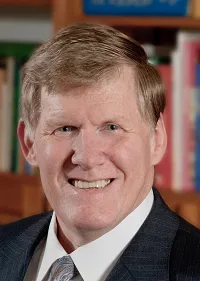
Walter Stromquist is a mostly retired mathematical consultant. He has been employed by Daniel H. Wagner Associates, and, earlier, by the U.S. Treasury Department. His B.A. is from the University of Kansas and his Ph.D. is from Harvard University. He has taught at Kansas, Harvard, the George Washington University, Temple University, Eastern University, USMA (West Point) and most recently at Bryn Mawr College, Swarthmore College, and the AwesomeMath Summer Program. His current research is in permutation patterns, fair division, and applications. He is a past editor of Mathematics Magazine.
Walter Stromquist plans to talk about the “catch-up” rule that makes service sports—including tennis, volleyball, squash, racquetball, and badminton—more competitive.

